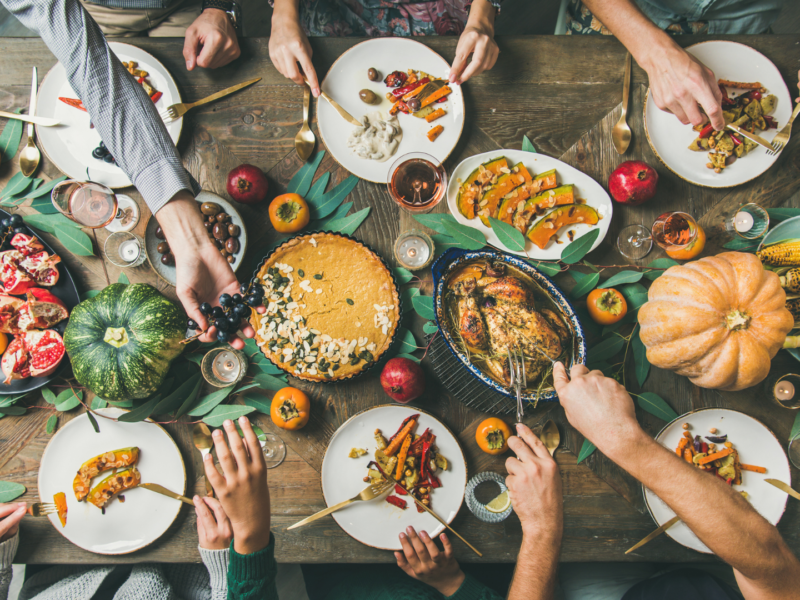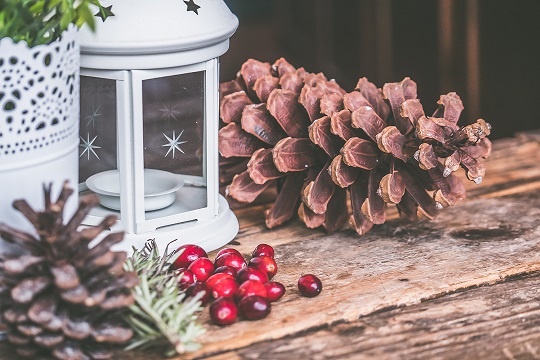I was introduced to a version of “The Allegory of the Long Spoons” years ago. Its truth struck a chord within me. Not so much for its discourse on the nature of the afterlife, but as a meditation on how our perceptions ultimately influence the experience we have as we walk through life.
The Allegory of the Long Spoons
I once ascended to the firmaments. I first went to see Hell and the sight was horrifying. Row after row of tables were laden with platters of sumptuous food, yet the people seated around the tables were pale and emaciated, moaning in hunger. As I came closer, I understood their predicament.
Every person held a full spoon, but both arms were splinted with wooden slats so he could not bend either elbow to bring the food to his mouth. It broke my heart to hear the tortured groans of these poor people as they held their food so near but could not consume it.
Next, I went to visit Heaven. I was surprised to see the same setting I had witnessed in Hell – row after row of long tables laden with food. But in contrast to Hell, the people here in Heaven were sitting contentedly talking with each other, obviously sated from their sumptuous meal.
As I came closer, I was amazed to discover that here, too, each person had his arms splinted on wooden slats that prevented him from bending his elbows. How, then, did they manage to eat?
As I watched, a man picked up his spoon and dug it into the dish before him. Then he stretched across the table and fed the person across from him! The recipient of this kindness thanked him and returned the favor by leaning across the table to feed his benefactor.
I suddenly understood. Heaven and Hell offer the same circumstances and conditions. The critical difference is in the way the people treat each other.
I ran back to Hell to share this solution with the poor souls trapped there. I whispered in the ear of one starving man, “You do not have to go hungry. Use your spoon to feed your neighbor, and he will surely return the favor and feed you.”
“You expect me to feed the detestable man sitting across the table?” said the man angrily. “I would rather starve than give him the pleasure of eating!”
Something to Chew On
Each of us holds a place at the table of life. Although we are born into a variety of circumstances, we are all given this gift of aliveness and the opportunity to craft a meaningful existence for ourselves. Do we belly-up to the plate, ready to partake in our share of life’s feast or do we push away from the table because we don’t like what’s being served?
Just as the inhabitants of hell and heaven were limited by the slats on their arms, we may experience obstacles to what we desire for ourselves. Maybe we have few material resources, physical limitations, or painful life experiences to overcome. How do we attend to the challenges placed before us? Do we point at them saying, “This is why I can’t.” or do we use the occasion to work with our circumstances and find creative solutions?
Perhaps most important to this allegory is the idea that our relationship to each other greatly determines the world we create. Do we explore what is mutually beneficial for ourselves and others or are we too caught up in what’s in it for us? Do we feed the souls of those around us with kindness and generosity, taking the time to be interested in their circumstances?
In the end, the reverence we convey for life, both our own and others, will greatly inform our interpretation of living as either heavenly or hellish.
Gratitude for what we have whets the appetite for living life to its fullest. When we expect the best to come from every circumstance, we work with what is, rather than resisting or working against it. The breadth of our magnanimity conveys our belief in the inherent goodness of all life. It may express itself in unexpected ways, but I have found it to be true that the generosity we extend to the world is given back to the same degree or greater.
The table is always set for our arrival at life’s feast. The onus is on each of us to show up and dig in.
If you’d like to learn more about the practices and principles of mindfulness in a trauma-sensitive environment, check out our upcoming Mindfulness-Based Stress Reduction (MBSR) courses for opportunities to learn and grow.
Already have an existing practice? Consider joining us for ongoing practice opportunities.



